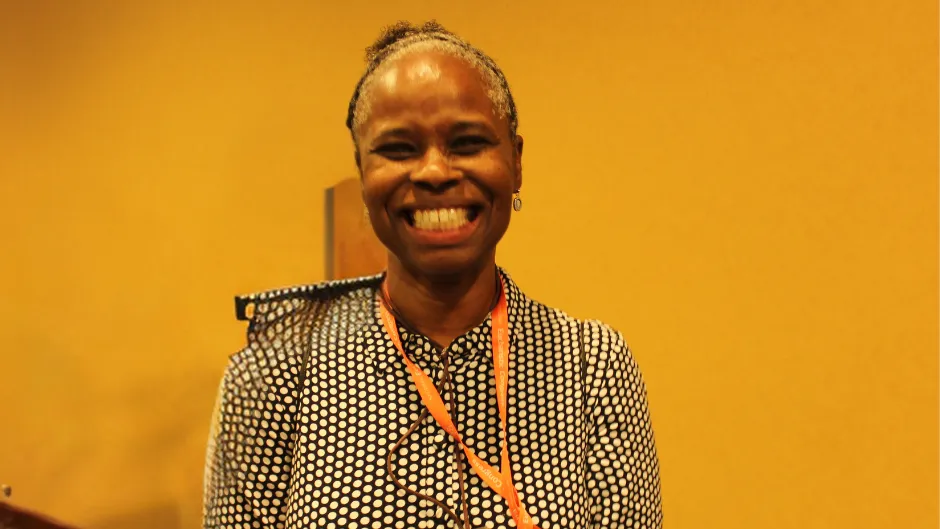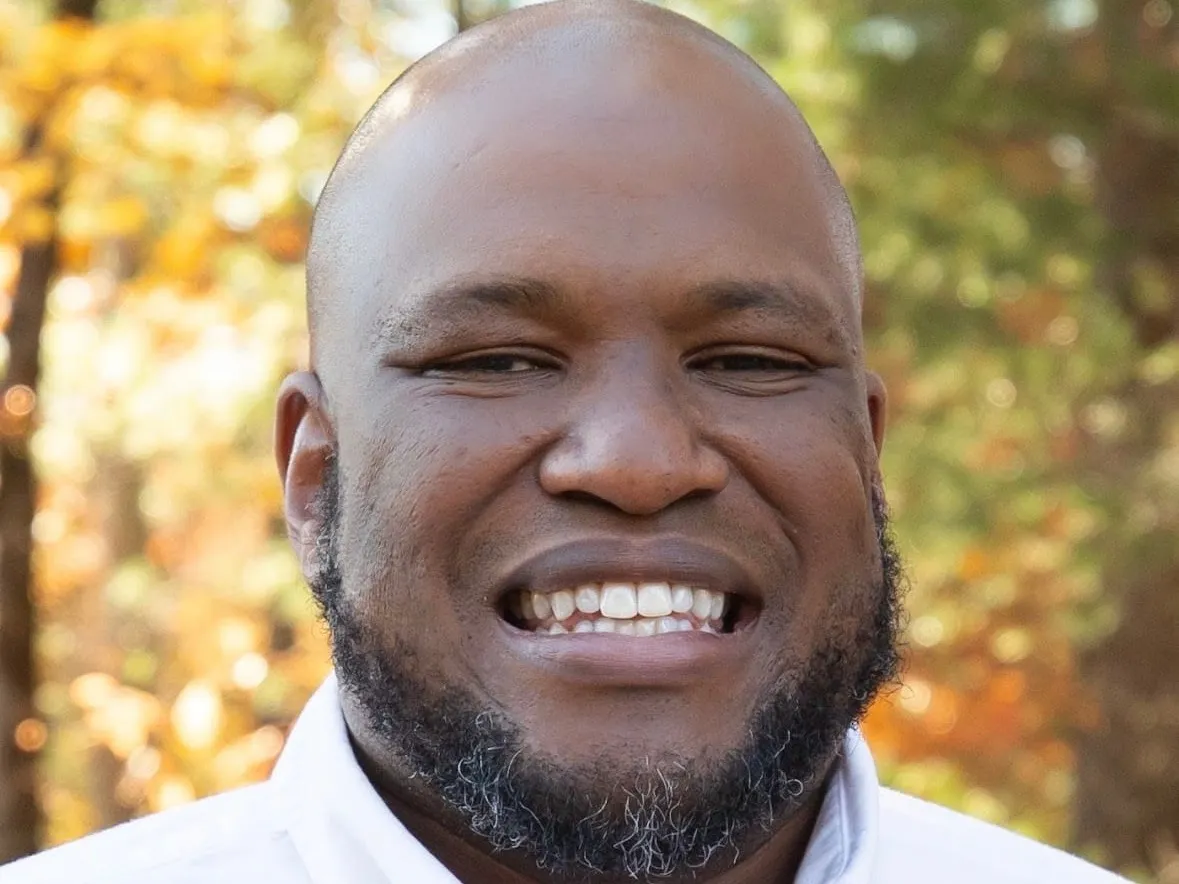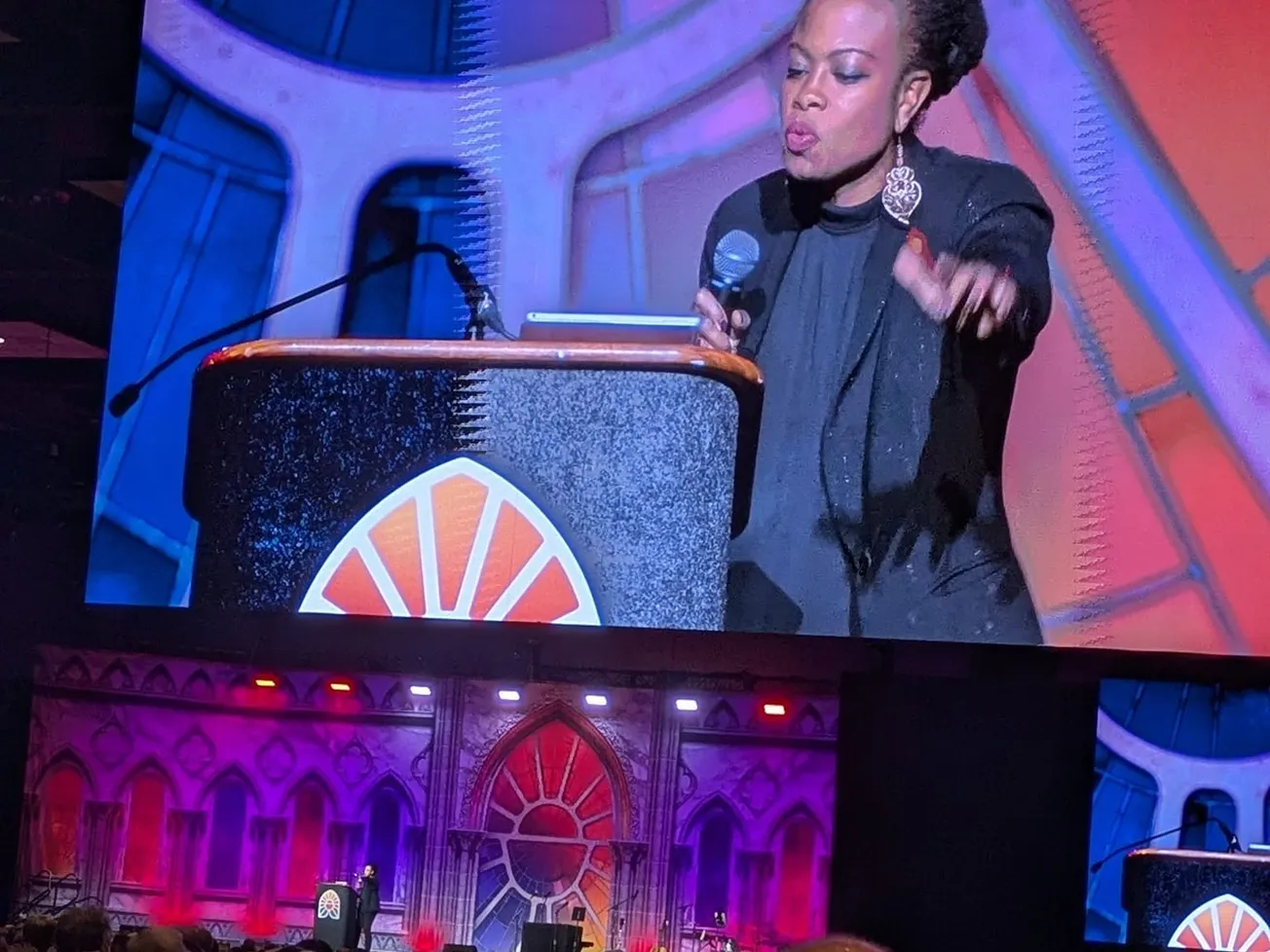In August 2021, Dr. Antoine Garibaldi announced his intentions to step down from the presidency of the University of Detroit Mercy following 11 years at the helm. He was the first African American to head the co-sponsored Jesuit and Mercy Sisters school, and leaves its top post after helping to increase its enrollment, endowment, rankings, and morale—even amidst a global pandemic.
Last week, Garibaldi sat down with BCM to discuss the decision, his more than 45-year career in academia (following a brief foray into religious life), and his plans for the future.
Note: This interview has been edited for length and clarity.
Nate Tinner-Williams: I know you're the first openly Black president of a Jesuit university. So that's historic in and of itself. What has your time been like at UD Mercy?
President Antoine Garibaldi: I always find myself trying to find out: how do you actually say that, what you said: “openly Black president”? A self-identified African-American president. A lot of people don't know the story of Patrick Francis Healy at Georgetown.
But my experience has been really excellent. This was my second presidency. I was previously president of Gannon University, a diocesan university in Erie, Pennsylvania, for 10 years. And I spent 15 years at Xavier University of Louisiana, where five of my eight siblings graduated from. And just being here in a big city like Detroit, where we also have a large number of African-American Catholics. And also, it's a very, very Catholic city. It's been a good experience.
So I would say that my accomplishments and good fortune have been really built on a lot of the things that I've learned over the years at Xavier and at Howard University and also at Gannon. I've truly enjoyed myself here, which is one of the reasons why I'm not leaving after I step down from the presidency at the end of June.
NTW: Yes, I don't think I've ever seen anything quite like that. So it's not a retirement per se. How did you decide you wanted to continue in academia?
AG: Well, I started off in academia as a professor, originally. I was a part-time professor at Howard University after graduate school at the University of Minnesota. My PhD is in educational psychology. I received a fellowship to work in the federal government in the Office of Education, before it became the US Department of Education. I was asked to stay on beyond the one-year fellowship and ended up spending five years in the department, and did not want to change what I originally set out to do, which was to be a full-time professor of education. So I would teach a class every other semester at Howard to keep myself grounded in my discipline. And so when I did leave the department after five years, and ended up going down to Xavier in New Orleans, I was an associate professor of education and also the chairman of Xavier's Department of Education. So that was the path.
But with every position that I've held—from being the chair and the dean and the Vice President of Academic Affairs at Xavier, as well as Howard University's first provost—I was always a tenured professor. So I made my decision, really a few years ago with my wife, and it became public a little less than a year ago, that I wanted to continue doing what I have been trying to do, which is to do a little research, and also writing and publishing, on topics that are of great interest to me.
But I will have been a president for 21 years at the end of June, and the average tenure of a president is about five years. So I'm pleased that I've been able to double that across two institutions. And I just feel like it's a really good time to transition back to being a professor and doing some research, and still being around to help and support the university in any way my successor feels that I can contribute to and still be a part of the community.
NTW: I'm wondering if your research will remain in the same field? If so, could you tell me more about that?
AG: Sure. One of the areas of research that I have focused on is African-American males. But I've also done a lot on urban education. I also was the principal of an alternative high school in St. Paul, Minnesota, when I was in graduate school. I didn't plan that; an opportunity was presented to me at the Urban League Street Academy, a school for students who had been suspended or expelled from school. So that accumulated experience really opened up that possibility for the fellowship because, at the time, the department was doing a major study of suspensions and expulsions in America. And it was also doing a study on children out of school in America, which was actually one of the first major initiatives of the Children's Defense Fund, led by Marian Wright Edelman. So it was almost like the stars aligned. I got involved in that research even though most of my doctoral research was focused a lot more on educational psychology and social psychology.
Along the way, I have also done a lot of work on higher education. One of my more recent articles, which was probably about five years ago, was on the expanding racial and gender identity in higher education. In a few words: the majority of students who are in college and are getting degrees are women. And that's across all genders. And it's also across all racial groups. And we can see that pattern not just at undergraduate degrees, but also at the doctoral level, the master's level, and even first professional degrees. So it comes back to this issue of: where are the guys? We as men have not done nearly as well as women there. And it doesn't just pertain to men of color; it pertains to all.
I also did a book 35 years ago on historically Black colleges and universities—that was when I was working on the higher education research team of the US Department of Education—and I'm beginning to do some writing on some of those topics once again, going to some of my former students, from Xavier in particular, who happen to be presidents of colleges and universities.
So yeah, I have a lot of research interests. But I would say that even the work that I've done on teacher education, and the need for more teachers, for example, is a result of some of my past work as a chairman of education. And also, just looking at the landscape, there's no question that we need a lot more teachers today, especially after the pandemic. So I plan to do research also on some post-pandemic findings as a result of what we've experienced over the last two and a half years. But with all of our research, I like to have what I call action-focused research, research that provides you with solutions.
NTW: That's great to hear. So, given that you will have some more free time so to speak, do you think there'll be another book coming out, or just articles?
AG: OK, so you're reading my mind here. I've got two plans for books. One I want to get into immediately is a book that really highlights my tenure here at Detroit Mercy as well as my tenure at Gannon. There are a lot of parallels concerning where the universities were when I began. We had challenging times with respect to enrollment, we had a low endowment, we had financial challenges, and we didn't have nearly as much activity going on in the community as we do today. So I want to talk about all the different things that we've done in order to try to remedy those issues.
One of the things that I did at both Gannon and here at the University of Detroit Mercy, was focused in on the large number of Catholic schools in both of the areas where the institutions are located. We had lost some partnerships and collaborations with the Catholic schools over time, and so I created a program for students who are graduates of Catholic high schools, and even Catholic K-12 schools. We offer these students a special grant/scholarship opportunity if they come here to Detroit Mercy, as we did at Gannon. These programs really helped us to increase the number of students coming from those Catholic high schools, as they did back in the 60s and 70s.
NTW: Right.
AG: And when I got to Gannon in 2001, I was on the job for less than 90 days and we had the 9/11 attacks. It really was something that significantly affected students who were there. And here in Detroit, I was here for less than two years and the city declared bankruptcy—the largest municipal bankruptcy in the country’s history. So the economic challenges, employment challenges, all of those kinds of things affect educational institutions’ enrollment. Another one of the common themes between both tenures was unemployment. It was there in the area of Erie, Pennsylvania, and we have some of the same kinds of challenges right here in Detroit, too. So I'd also like to chronicle that.
Also, both of the institutions which I have led have co-sponsorships. The University of Detroit Mercy is a merger of the Jesuit institution, University of Detroit, and Mercy College of Detroit; that happened in 1990. Gannon merged with a Sisters of St. Joseph’s school—Villa Maria College, which was an all-women's school—in 1989. That was just one year apart. So when you look back at that, it's really kind of interesting that I have had the opportunity to lead two dually sponsored Catholic institutions.
So that will be book one. It’s really going to be focused on leadership. What are the things that we did in order to gradually address all of those problems, and make the university a stronger university over a period of time? You can't do these kinds of things over two or three years; it really takes a while.
And depending on how much time or space I have, I would also like to write about my seminary experience. I was a Josephite seminarian for almost nine years. I had a lot of great experiences from that.
NTW: That’s incredible. I also want to speak to you about your experience at St. Augustine in New Orleans, because I understand you attended there for middle school. And of course, the school is run by the Josephites. So what was your experience there? What was the influence of Catholic schools, specifically Black Catholic schools, on you growing up?
AG: Oh, a tremendous impact. My reasons for going to the seminary were that I really admired the priests who were at my parish, and I decided relatively early—probably by about seventh grade, maybe a little bit earlier—that I wanted to become a priest. Those of us who were in school back at that time would always have visiting priests, sisters, and religious brothers coming to talk about a vocation. You would usually get one of these little cards afterward, where it says: “Indicate whether you are interested in becoming a priest, brother or not.” Now, when you're in elementary school, you don't check “None of the above”. You check one, even if you weren't interested in it. But that's really how we became aware of it.
But I was very sure about it. I knew by eighth grade that I wanted to enter the Josephite seminary. So I only went to St. Augustine for eighth grade. I went to St. Joan of Arc for elementary school. I'm one of nine children, sixth in the family. And when I went to St Aug in eighth grade, that was only the second eighth-grade class they’d had. Because up until that time, it was 9-12th.
But among my brothers, all five went to St. Augustine. When I think about my nephews, and even great-nephews, there’s probably about another 10. And I'm probably undercounting. So though I’m not an alumnus of St Aug, I think and act like one—a Purple Knight, as they call them down south.
NTW: On that topic of young Black males being influenced positively in an educational context, what would you say to those who are pondering their future careers?
AG: Well, I would say to them: pursue your interests and pursue your dreams. I would also say to them to be patient and not expect success immediately. I know that when I went to both St Aug and also the seminary, we were always reminded that you had to go through all of these other stages before you could be the leader of your organization. It doesn't happen overnight. It takes time for you to develop and learn all of the skills that you need.
The other thing I would say is that some of these things, over time, will probably develop. I have regular student hours, and many of the students come in, they want to get to know me, and I also get to know them. Lots of them want to know, like, “Well, how did you become a president?” They're usually surprised when I tell them, “Well, I didn't want to become a president, I want to become a priest.” That really developed over time. I wanted to be a teacher; there was no question about that. But as you grow and you experience other roles, then the opportunities for leadership really become available to you over time. And you just never know where it will be. I always give the students the recommendation that if you do a good job, other people are noticing, and many times, it will be others who will nominate you or recommend you for those positions.
In one of my articles, I talk a lot about how if you set realistic goals and accomplish them, then everything else will fall in place. And so, I was very surprised throughout my career, when people who I had known recommended me for positions that I might never have considered—ever. I didn't really know about this job that was available here at the University of Detroit Mercy, but somebody recommended me for it because they were aware of what I was doing at Gannon. So I think that those things are very important. So I always emphasize: prepare yourself, do all the right things that you need in order to be successful, and then other doors are going to open. But you have to take those initial steps first before you can really get to whatever the endpoint is.
NTW: Amen. Good advice. So as you move into your next role, stepping down from the presidency, what do you believe the future has in store for the University of Detroit Mercy?
AG: I think the University of Detroit Mercy is going to grow even stronger. As an institution, we have achieved a lot of great notoriety because of some of the things that we have been doing.
Last year, we had our largest freshman class in 12 years, even during a pandemic. We're hoping that this coming year, we might be able to top that. We'll know within a couple of months whether or not that's possible. We have also grown our endowment from $25 million to more than $95 million over the last 11 years, which means that we have more opportunities to offer scholarships to students. And we're very proud of the fact that a third of our students are first-generation college students. There are many students who want to come to the university who are not quite sure that they can afford a private education, and even more so an education from a Catholic university. We've been able to make that possible for students through scholarships and grant programs.
Another key point is that we have really received lots of active participation from our alumni. We had a $100M campaign that we ended in 2019 at nearly $115M. So that has helped us to be able to increase the number of scholarships, to enhance our academic program, and also to begin to do the kinds of work that we need to do on some of our facilities that are soon to be 100 years old. All of those things have really helped us in terms of our ranking. We're very proud of the fact that we're the only private university that represents Michigan in the top 200 rankings from US News and World Report. That's a pretty big deal for this institution, which has almost 5,300 students.
It's really the students who make all those things happen. And by those students coming to the university, they are saying “This is an institution where I want to be, where I get to know faculty, I get to know my staff, the administrators, get to know the president on a day-to-day basis. I’m not in a very large class, where I don't get to know even my fellow students, let alone my professors.” So I think all the building blocks that we have put in place are beginning to settle. So when we talk to students about why they should come to the university, we use our tagline and say: “Here's a place where you can truly build a boundless future.” The sky's the limit. You just have to work hard and all of those doors will open for you.
NTW: That's wonderful. The University of Detroit Mercy in a nutshell.
AG: We think so. We think so.
NTW: Well, from one former St. Joan of Arc parishioner to another, I very much appreciate you speaking with me.
AG: You take good care.
Nate Tinner-Williams is co-founder and editor of Black Catholic Messenger, a seminarian with the Josephites, and a ThM student with the Institute for Black Catholic Studies at Xavier University of Louisiana (XULA).










